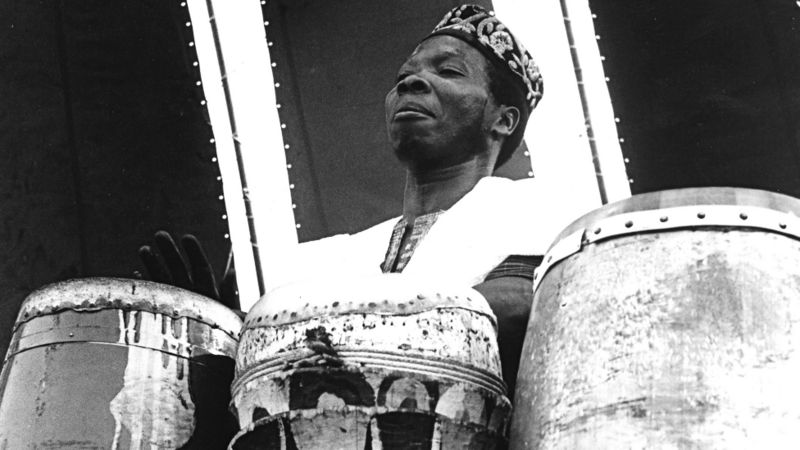BABATUNDE OLATUNJI
BBC News, 02.09.2020
Three years before Rosa Parks’ bus boycott, Nigerian drummer Babatunde Olatunji protested against racial segregation in the southern states of America. He was part of a generation of Africans who played an important role in the fight for racial justice in the US – and continue to do so, writes the BBC’s Aaron Akinyemi.
“The leaders in the 50s and 60s provide me with a great deal of inspiration,” Nigerian-American activist Opal Tometi, co-founder of the Black Lives Matter movement, told the BBC.When Martin Luther King Jr delivered his historic I Have a Dream speech during the March on Washington 57 years ago, around 250,000 people attended the event, including prominent figures such James Baldwin, Harry Belafonte and Sidney Poitier. Among the guests was perhaps a slightly more unexpected figure – Nigerian drummer Babatunde Olatunji.Born in 1927 to a Yoruba family in Lagos state, Olatunji won a scholarship to study at Morehouse College in Atlanta in 1950.He became a pioneering drummer, releasing 17 studio albums, including his 1959 debut Drums of Passion, widely credited with helping to introduce the West to “world music”.
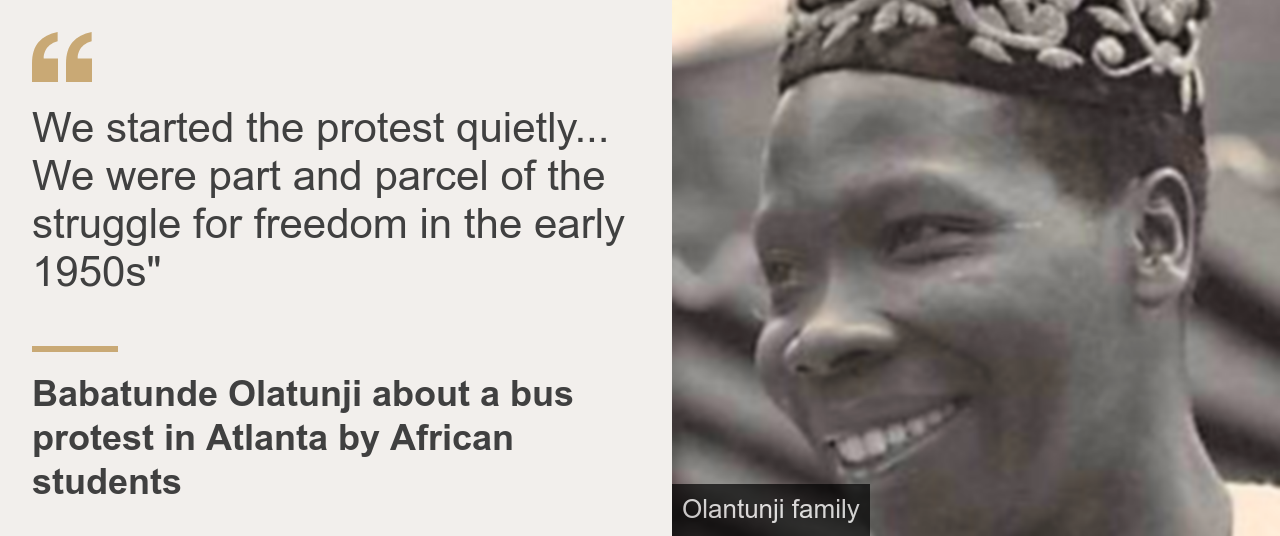
Despite Olatunji’s enduring musical legacy, which includes a Grammy nomination and compositions for Broadway and Hollywood, his civil rights advocacy is less well known.”He was committed to social activism throughout his life,” says Robert Atkinson, who collaborated with Olatunji on his autobiography The Beat of My Drum, which was published in 2005, two years after his death.”He really deserves to be remembered more for his role as a political activist in the US civil rights movement – before it was even a movement.”
Pride in African culture
As a Morehouse student, Olatunji encountered ignorance and stereotypes about Africa and strove to educate his fellow students about the continent’s music and cultural traditions. He started playing African music at university social gatherings and gave drumming demonstrations at both black and white churches across Atlanta.
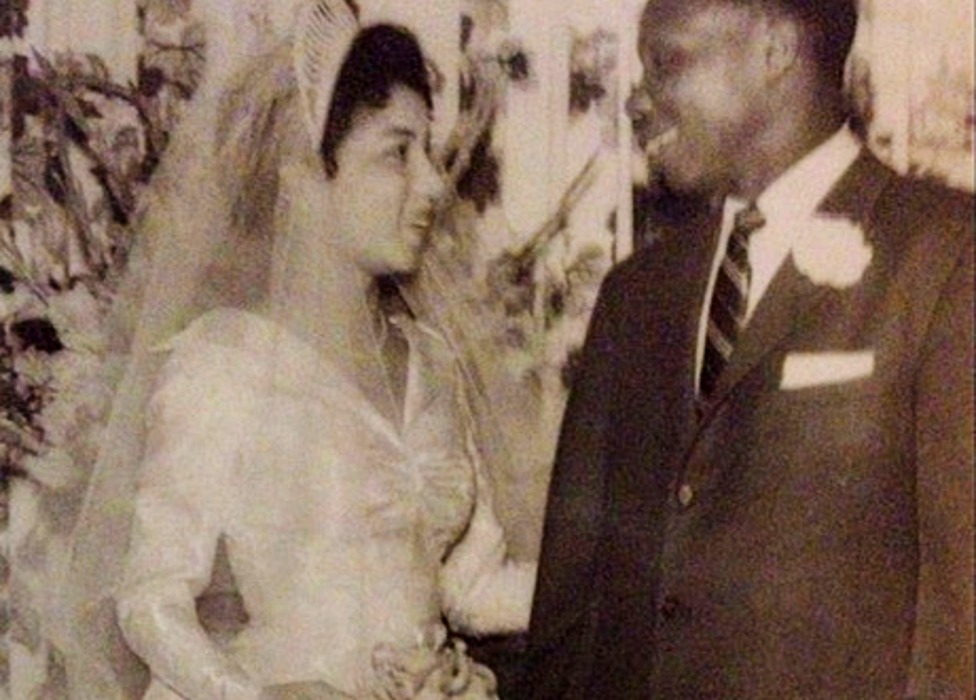
“Baba sparked a deep sense of pride among African Americans by strongly promoting images of African culture, which in a subtle but significant way, helped set in motion the currents of the early civil rights movement,” Atkinson says.At a time of state-sanctioned racial segregation in the US, Olatunji quickly became acutely aware of racism, and began organising students to challenge so-called “Jim Crow” laws in the south.In 1952, three years before Rosa Parks helped spark the Montgomery Bus Boycott in Alabama, Olatunji staged his own protests on public buses in the south.On one occasion, he and a group of students boarded a racially segregated bus in Atlanta wearing traditional African clothes and were allowed to sit anywhere they wanted because they were not identified as African Americans, who had to sit at the back.
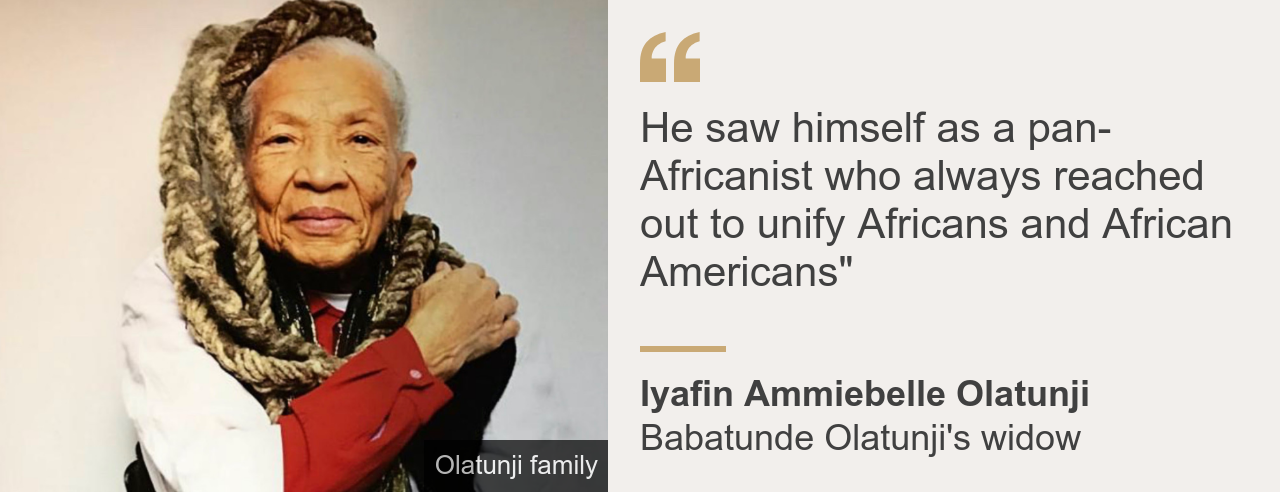
The next day, they boarded the same bus in their Western clothing and refused to sit in the back when ordered to do so by the bus driver. Olatunji and his friends continued to challenge segregation in this way despite the threat of prison.”We started the protest quietly,” he later recalled of the incident. “We were part and parcel of the struggle for freedom in the early 1950s.”
Meeting Martin Luther King and Malcolm X
Olatunji’s widow, 89-year-old Iyafin Ammiebelle Olatunji, told the BBC that he was called in to “ease the tensions in various communities”, such as during the aftermath in 1965 of deadly riots in the predominately black neighbourhood of Watts in Los Angeles.”He saw himself as a pan-Africanist who always reached out to unify Africans and African Americans,” she said.
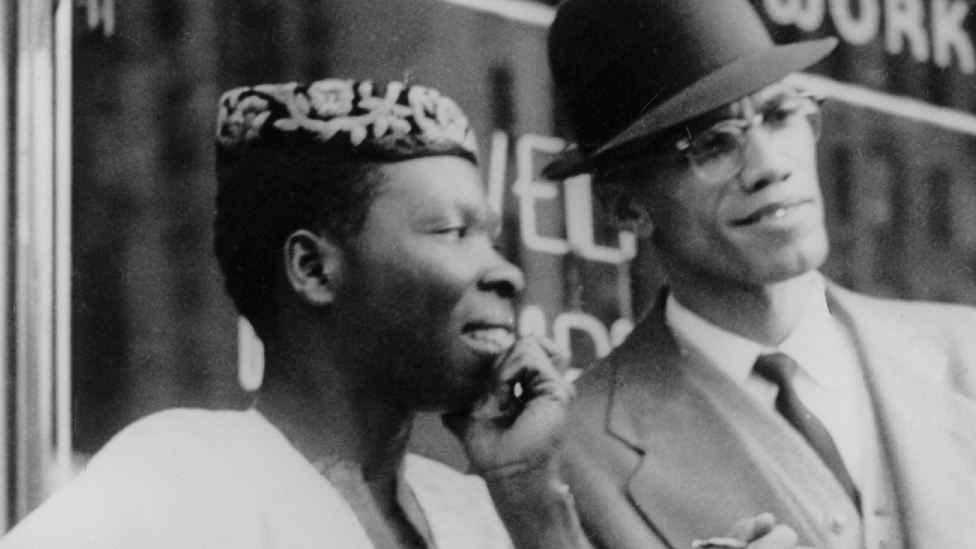
Olatunji became a president of the Morehouse student body, which led to him meeting many early civil rights leaders in the 1950s, including Martin Luther King Jr and Malcolm X.His involvement in the US civil rights movement was strongly inspired by the wave of anti-colonial resistance movements sweeping across Africa during the 1950s and 1960s – of which he was a part.In 1958, he travelled to Accra to attend the All African People’s Conference organised by Ghana’s independence leader Kwame Nkrumah.The conference brought together leading independence figures and delegates from 28 African countries and colonies to strategise their opposition to European colonialisation.




